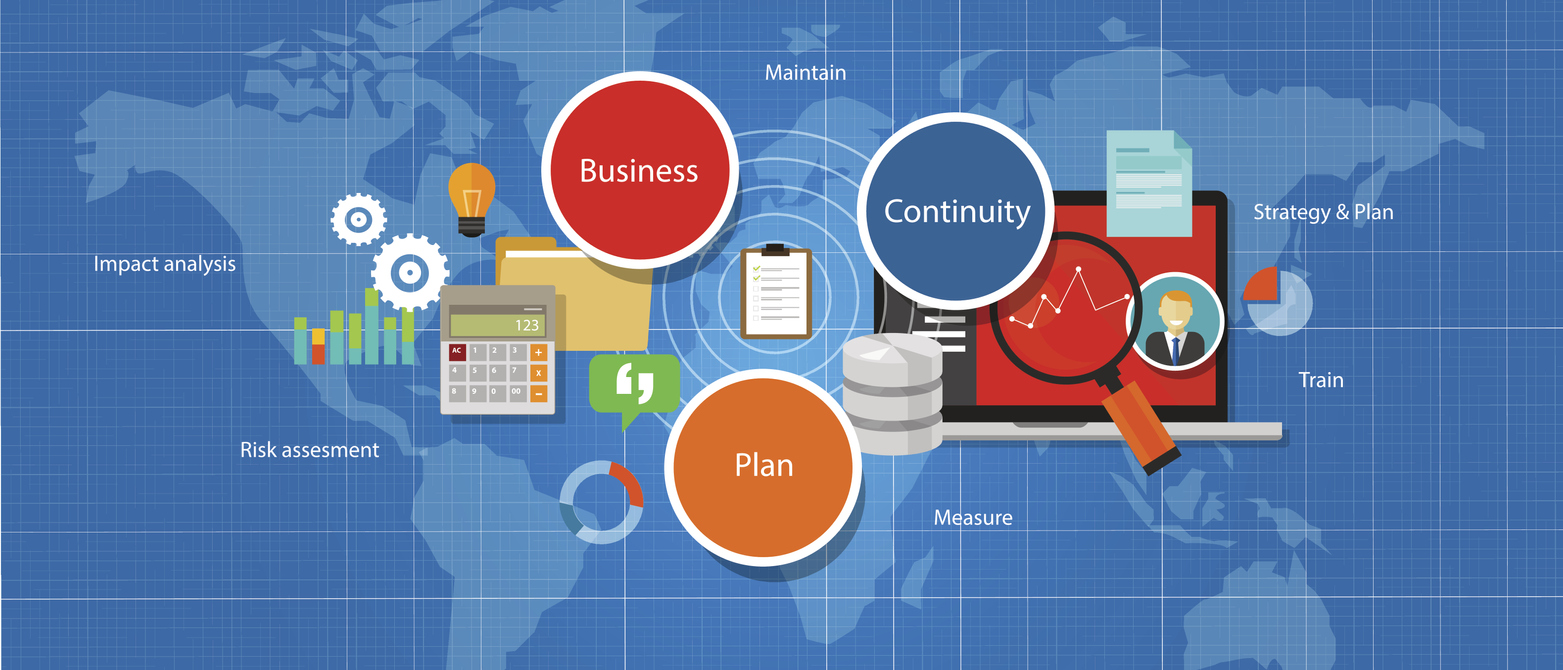
How Important Is Effective Business Continuity Planning for Melbourne Business Owners?
The unpredictable nature of today's business environment makes it vital for small businesses to be prepared for any unforseen events that may disrupt their perations. Business continuity planning serves as a strategic roadmap for companies to maintain operations espite challenges such as natural disasters, cyber-attacks, or hardware failures. Given the competitive nature of the Melbourne market, ensuring the continous functioning of your IT system holds paramount importance. As a trustd provider of IT services for Melbourne businesses, MTR IT is committed to helping you develop a comprehensive business continuity plan that safeguards your organisation's technology infrastructure.
Let's delve into the core elements of an effective business continuity plan for small businesses in Melbourne. My aim at the end of this Blog Post is to provide you with practical guide on how to design, implement, and maintain a robust plan that minimises the impact of disruptions on your organisation. Addressing critical elements of businesscontinuity planning, such as risk assessment, data backup and recovery, employee communications, and IT infrastructure resilience, we will show case how a well-thought-out plan can help ensure your business's survival during trying times.
We aim to equip you with actionable insights to make informed decisions about your business continuity planning, ultimately ensuring your small business is better prepared to face challenges head-on with minimal disruption or downtime.
A well-crafted business continuity plan does not merely act as an insurance policy; it reinforces your business's resilience in the face of adversity and underscores your commitment to uninterrupted operations. Stay tuned as we explore the intricacies of business continuity planning, and trust MTR IT to provide the expertise you need to navigate potential threats and safeguard your Melbourne small business.
-
Conducting A Thorough Risk Assessment And Identifying Critical Business Functions
The foundation of any effective business continuity plan is a comprehensive risk assessment. Identifying the threats your Melbourne small business may face and understading the possible consequences is vital for adequately preparing for disruption.
Some steps to conduct a risk assessment include:
-
Identifying Potential Hazards
Assess the liklihood of various risks such as natural disasters, power outages, hardware or software failures, and cyber attacks.
-
Determinig the impact
Examine the potential consequences of each identified threat, including financial losses, operational interruptions, reputational damage, and regulatory penalites.
-
Prioritising Critical Business Foundations
Determine which aspect of your operation are most essential to maintaining your business's ongoing viability during periods of disruptions.
-
Formulating A Response Strategy
Create plans for resource allocation and responsibilities within your organisation to address each high-priority risk.
-
Implementing A Data Backup And Recovery Strategy
One key element of business continuity is having a robust data backup and recovery strategy. Protecting your company's data is essential to ensuring that your small business stays operational and can regain stability after an incident.
Considerations for an effective data backup and recovery strategy include:
-
Data Storage Options
Determine the most suitable storage methods for your business, such as onsite storage, offsite sotrage, or cloud-based services.
-
Backup Frequency
Establish how often your data should be backed up based on factors such as data sensitivity, regulatory requirements, and rate of change.
-
Redundancy
Multiple backups ensure data protection, even if one backup system fails.
-
Recovery Testing
Regularly test your data recovery process to ensure a reliable restoration of your business's data during an actual disruption.
-
Developing An IT Infrastructure Resilience Plan
To maintain operations during disruptions, your business needs a resilient IT Infrastructure that can withstand and recover from different types of incidents. Your IT infrastructure resilience plan should address the following:
-
System Redundancy
Implementing redundant systems and components ensures that if one system fails, another can immediately take over and maintain the functionality of your IT infrastructure.
-
Disaster Recovery Options
Consider investing in technologies such as virtualisation, which enables you to quickly restore your IT systems onto new hardware or in a cloud environment.
-
Monitoring And Maintenance
Regulalry monitor and maintain your IT infrastructure to ensure its performance and security and to identify potential issues before they escalate into major disruptions.
-
High Availability Architecture
Design your IT infrastructure in such a way that it remains highly available even during disruptions, minimising downtime and maintaining productivity.
-
Establishing Clear Communication Channels During Disruptions
Communication is crucial during disruptions. A well-defined communication plan keeps your employees, customers, and partners informed during crisis events, ensuring that everyone remains u to date on your organisational response and that uncertainty is minimised.
Components of a robust communication plan include:
-
Employee Contact Systems
Develip a system for contacting employees to provide updates during disruptions, including backup contact methods if primary channels such as email are unavailable.
-
Customer Communication
Inform your customers about the disruption and your plans to mitigate the impact, reinforcing your commitment to resilience and traansparency.
-
Stakeholder Updates
Keep stakeholders informed about your business continuity efforts, leveraging trusted communication channels for sensitive information.
Ensuring Business Continuity for Melbourne Small Businesses
Business continuity planning is a crucial investment for small business in Melbourne, underpinning their ability to reamin operational during unforseen challenges. By conducting a thorough risk assessment, implementing a solid data backup and recovery strategy, developing a resilient IT infrastructure plan, and establishing clear communication channels during disruptions, your small business will be poised to weather varios adverse events and maintain operational momentum.
MTR IT takes pride in offering the expertise and support that Melbourne small businesses need to develop comprehensive and effective business continutity plans. Trust in our experience and professionalism to guide you through this essential process and embrace a future where your business thrives even in the face of adversity. If you need Business IT Support In Melbourne, do not hesitate to contact us today.


